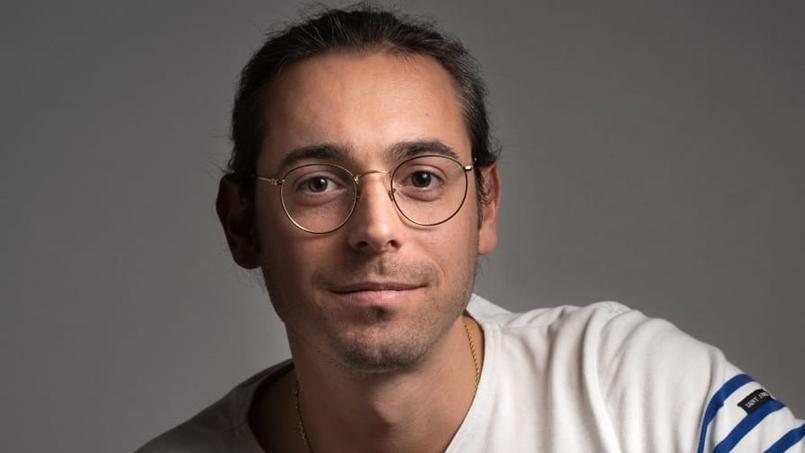INTERVIEW – The president of the Paris hospital interns union delivers an implacable, fierce, precise and empathetic account of the daily lives of interns.
Overwork, pressure, lack of equipment and system D are part of their daily life. Over the past two years, the Covid-19 epidemic has revealed the weaknesses of one of the best health systems in the world. On the front line of this “war” against the virus, caregivers. And among them, medical interns. In his first book In the hell of the hospital (Robert Laffont), published this Thursday, April 7, Léonard Corti, in the fourth year of internship in anesthesia-resuscitation and president of the union of interns in Paris hospitals, testifies to the reality of the work of interns. A touching testimony, often hard and always precise which plunges in particular into the bowels of the Pitié Salpêtrière. At 31, the ex-sciencepiste who graduated with a master’s degree in public affairs in 2014 proposes emergency measures and addresses candidates for the presidential election.
” READ ALSO – Burn-out, suicidal desires … The mental health of medical students is “in danger”
How would you describe the situation at the hospital?
It is a large sick body which is drifting, which is only holding together thanks to the selflessness and dedication of its staff and of the interns, the kingpins who represent around 40% of the medical staff. Being a doctor is wonderful, but the situation no longer makes you want to work in the hospital, it’s a shame. I wrote to warn about this degradation of the hospital which affects our training, our care and our health.
Burn-out, feelings of helplessness, panic… Psychologically, how are the interns you say they can “get used to everything”?
We are under very significant pressure with a level of consideration that is not always proportional. We feel very useful without being made to feel it. Take wages, for example: receiving 1,700 euros for 60 hours of work per week in the Ile-de-France region is neither viable nor normal. There are even interns who work 90 hours a week. It’s lunar. Doing so puts everyone at risk. You can’t always make the right decisions by not sleeping during a 24-hour shift.
What have you learned from the health crisis?
We are told that France has the best healthcare system in the world. The Covid made us discover two things: our propensity to do medicine unworthy of a country as rich as France and that we were not able to do as well as what we were taught. So, we feel guilty even if we are not responsible. You have to stop, and start testifying. We must not accept to do things badly without flinching.
“We must not accept doing things wrong without flinching.”Leonard Corti
There is, in your opinion, a “powerful culture of omerta that reigns in medicine”. Can your testimony have consequences on your career?
I have already taken heavy pressure from deans with very brutal methods. The intern is in a vulnerable situation since the person who validates his internship is his hierarchical superior. Non-validations happen often. I agree to take the risk because a lot of doctors agree with my observation and my proposals. Teeth will grit, but it’s our responsibility to show behind the scenes.
You must take three applicable emergency measures right away. Which?
Count working time to respect the maximum European weekly duration of 48 hours, stop 24-hour call duty and create an observatory on suicides and psychosocial risks among interns. To the candidates for the presidential election, I say to them: take up this problem with ambition, put the means on the table and do not exclude any subject.
In the hell of the hospitalLéonard Corti (Editions Robert Laffont, 186 pages, 18 euros).
–

